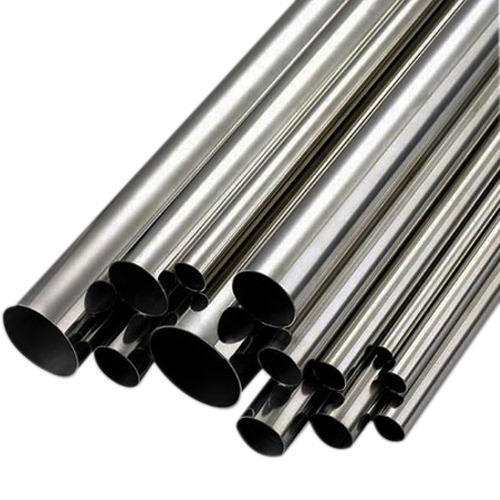In the world of stainless steel alloys, stainless steel 304 is a mainstay. Known for its adaptability and extensive application, it’s frequently known as the workhorse of stainless steel. Referred to as “18/8” stainless steel, it is an austenitic chromium alloy with an 18% chromium and 8% nickel composition. This alloy’s remarkable blend of strength, durability, and corrosion resistance explains its widespread use. Stainless Steel 304 is subject to the corrosive forces of its surroundings, despite its admirable qualities. Understanding its vulnerabilities is critical, especially in environments high in chloride ions. Because they have the ability to cause local corrosion, like pitting or crevice corrosion, these ions represent a serious risk. Because stainless steel 304 is prone to corrosion caused by chlorides, it should be carefully considered in a variety of applications. For example, this alloy might not function as well in high-salinity environments like coastal regions or areas that are often touched by melting salts. Chloride ions’ corrosive characteristics can weaken the chromium oxide layer that normally protects stainless steel from damage, hastening component deterioration. When using stainless steel 304 in crucial applications where corrosion resistance is crucial, one must exercise extra caution. When the alloy is used in coils, as in HVAC or industrial systems, it can degrade more quickly when placed in environments high in chloride. The effects of corrosion go beyond aesthetic issues; they can lead to significant maintenance costs, reduced structural integrity, and impaired functionality. Because of its many advantages, stainless steel 304 is still a popular option in many industries even with these limitations. Because of its outstanding bending and weldability, it can be used in a wide range of fabrication processes, from complex designs to massive structures. Its inherent resistance to oxidation and high temperatures also contribute to its appeal in a variety of applications, ranging from aerospace components to kitchen appliances. Prudent steps can be taken to reduce the problems related to corrosion caused by chloride. This could entail applying coatings for protection or using different grades of stainless steel that are more appropriate for harsh environments. Moreover, routine maintenance and inspection methods can help identify corrosion problems early on and take action to fix them, extending the useful life of Stainless Steel 304 components.
Studying 304 Stainless Steel’s Versatility
Of the many varieties of stainless steel alloys, 304 stainless steel is distinguished by its remarkable properties and extensive range of uses. This alloy is well-known for its adaptability and possesses a number of qualities that make it a top option across a range of industries. Let’s examine the salient features of stainless steel 304 and its importance in various processes in more detail.
Outstanding Weldability: 304 stainless steel stands out for a number of reasons, chief among them being its outstanding weldability. It exhibits exceptional compatibility with all common fusion procedures, filler metals included or not. It is especially appealing for fabrication processes where welding is essential because of this feature. To achieve the highest level of corrosion resistance, thick sections of stainless steel 304 may need to be post-welded and annealed. Manufacturers can maximise the potential of this alloy while maintaining its longevity and structural integrity by carefully controlling the welding process and using the right post-weld treatments.
Heat Treatment: Although stainless steel 304 performs admirably in many applications, it is important to take into account how it will react to heat treatment. Heat treatment procedures can give the alloy particular qualities that increase its robustness and longevity. Heat treatment of stainless steel 304 involves heating it to between 1010 and 1120 degrees Celsius and then quickly cooling it down. It’s crucial to remember that heat treatment cannot be used to harden these grades on its own. In the production of stainless steel pipes, where obtaining high strength and durability is crucial, heat treatment plays a crucial role. Manufacturers are able to customise the properties of stainless steel 304 to meet specific application requirements while maintaining optimal performance and reliability by carefully managing the heat treatment process.
Machinability: Stainless steel 304 offers better machinability in some variants in addition to its excellent heat treatment and welding properties. The grade 304 “Ugima” variant is designed to provide exceptional machinability in bar products, thereby enabling precise machining processes. For manufacturers, this improved machinability creates new opportunities for increased productivity and efficiency in machining operations. Because stainless steel 304 is more easily machined, manufacturers can easily achieve intricate designs and tight tolerances when milling, turning, drilling, or performing other machining operations.
Explore the Various Uses for Grade Stainless Steel 304 Pipes


Stainless steel 304 pipes are highly valued for their adaptability and durability, serving as essential components in numerous industries. These pipes are the go-to option for crucial applications because of their unmatched dependability and durability, which are useful in both food processing and chemical containment. Stainless Steel 304 pipes are the best choice in the food processing industry because they are highly resistant to corrosion and offer excellent hygiene. These pipes easily endure the harsh conditions of food-related environments, in contrast to conventional materials that easily corrode in acidic environments. They are used in a wide range of products, such as foot overbridges, dishwashers, sinks, and commercial food processing machinery. In the food industry, stainless steel 304 is a vital asset because of its inherent resistance to corrosion, which guarantees the quality of food products and the longevity of equipment. The advantages of SS 304 pipes extend to the brewing industry as well. These pipes perform a wide range of dependable tasks, from heat exchangers to chemical containers. Stainless Steel 304 pipes provide a durable solution in harsh environments such as pipelines and power plants, as they can withstand high temperatures and corrosive substances. Their adaptability also includes pressure tank applications, where they offer a reliable and secure way to hold volatile materials like petroleum vapours or fumes. Even though stainless steel 304 pipes have many advantages, their use in some applications—like chemical transport and wastewater treatment—is sometimes disregarded because of perceived cost concerns. But it’s important to understand that, when compared to other materials, stainless steel 304 pipes are an extremely wise investment because of their unmatched performance and longevity. They are the best option for demanding environments where dependability is crucial because of their exceptional corrosion resistance and durability. It’s critical to comprehend the qualities that characterise stainless steel 304 pipes and tubing in order to fully appreciate their benefits. Stainless Steel 304, also known as “18/8” stainless steel, is an austenitic chromium alloy with an 18% chromium and 8% nickel composition. Unmatched in its ability to withstand corrosive environments, this alloy satisfies strict requirements for corrosion resistance. Because of its remarkable qualities, which have led to its extensive use and versatility, it is a fundamental material in many different industries.
Analysing SS 304 Pipes Benefits
For many different applications, 304 Stainless Steel pipes are the best option when it comes to performance and dependability. Let’s examine some of the main benefits that make these pipes essential in a range of sectors.
Outstanding Flexibility: 304 Stainless Steel pipes & Tubes exhibit remarkable flexibility in Cuttack and beyond, which makes them perfect for a variety of welding applications. Without the need for post-welding annealing, these pipes show excellent weldability whether welding thicker components or thin sections. Their superior structural integrity and seamless fabrication are guaranteed by their compatibility with standard fusion processes, whether or not filler metals are used.
Heat Resistant: Because stainless steel 304 pipes can be subjected to particular solution treatments, they have exceptional heat resistance. These pipes can tolerate high temperatures without readily hardening through thermal treatment alone if they are heated to temperatures between 1010 and 1020 degrees Celsius and then quickly cooled. Because of this, heat treatment is a crucial step in the production of stainless steel pipes, guaranteeing that they will have the high strength and longevity needed for a range of industrial uses.
Austenitic Nature: ss 304 tubes and pipes have inherent benefits because they are austenitic alloys, especially when making moving parts. They are ideal for dynamic applications where flexibility and resilience are critical due to their austenitic structure. The versatility of this grade is applicable to a wide range of industries, such as the dairy, food, beverage, and chemical sectors. Acclaimed for its resilience and versatility, stainless steel 304 is referred to as a “miracle metal,” finding use in a vast array of commercial and industrial settings across the globe.
Are You in Need of High-Grade 304 Stainless Steel Pipes?
Look no further than Shree Viratra Enterprises, a top producer of stainless steel pipes in India, if you need plumbing supplies for your upcoming project. Our dedication to quality and client satisfaction guarantees that we offer solutions that are specifically tailored to your needs, budget, and industrial specifications. We have pipes that are appropriate for both high- and low-pressure applications thanks to our extensive network of manufacturers and suppliers. Get in touch with us right now to talk about your requirements and see for yourself how dependable 304 stainless steel pipes can be.

